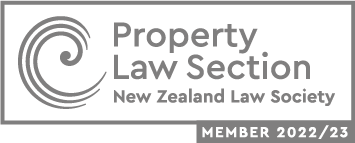Can you trust your trust?
A basic property right we all share is the ability to gift our assets whilst we are alive. There are however claims available that restrict what you can gift after death in your will. Blended families and estranged children can cause a headache for estate planning. The Family Protection Act 1955 (FPA) gives children of the deceased the ability to claim against their parent’s estate where they consider inadequate provision was made for them in the will (or if they are left out of the will).
One common tool for estate planning and avoiding potential estate claims after death (particularly where there are estranged children) is the family trust. This is effectively gifting assets before you die to avoid FPA claims. Until recently, it was widely accepted that trust property was beyond the claws of adult children making FPA claims as the property belongs to the trust not the estate. The decision in A v D [2021] NZHC 2997, a High Court case from last year, threw a spanner in the works for estate planners. The Court of Appeal has more recently overturned that decision in D and E Ltd (as trustees of the Z Trust) v A, B and C [2022] NZCA 430. So what does this case mean for those looking to protect their assets for the next generation? We look into the facts in further detail in this article.
The facts of A v D are extreme. There was horrific evidence of mental, physical and sexual abuse of the estranged children by their late father. The estranged children all suffered mentally and physically. In particular, the daughter who said she continues to live in poverty and that she suffers from poor health associated with PTSD.
The estranged children naturally did not have an ongoing relationship with their father and their father developed a new relationship and new family. The father sought to alienate his property from the estranged children and protect his assets for the new family. He did this by setting up a trust to benefit his new family, leaving his estate relatively small and unworthy of FPA claims from the estranged children – who undoubtedly would have had FPA claims against his estate. The father was effectively gifting his assets whilst he was still alive to avoid his estranged children having the ability to make FPA claims on his estate.
After the father passed away, the estranged children issued proceedings against the trust attempting to unwind the gifts made to the trust. The estranged children alleged that the alienation of the assets by their father to the trust constituted a breach of fiduciary obligations the father owed to them. They alleged that the trustees (one being the now deceased father) received the property knowing of the breach of fiduciary duty and sought orders that the assets vest in the father’s estate under a constructive trust so that they could bring FPA claims.
The estranged children were successful in the High Court. Gwyn J held that there was a fiduciary duty that the father owed to his adult estranged children. Gwyn J said “… at the time he gifted the property [to the Trust], [the father] owed each of the [children] a duty to recognise them as members of his family and to provide for them from his wealth, due to the vulnerability his earlier breach of fiduciary duties had caused them.” The assets held by the trust were declared to be held on a constructive trust for the estate of the father.
The Court of Appeal allowed the appeal. Gilbert J concluded that there was no fiduciary relationship between the father and the estranged children when the assets were gifted to the trust. Kós P agreed and found that the fiduciary duty ended when the father ceased to care for the children and did not result in a sustained fiduciary duty to make proprietary provision during the long years in which the children and father no longer lived together.
What does this mean for you? If you are in a position where you have assets you want to protect for future generations and perhaps have competing claims from other children, there are ways that you could alienate those assets. The family trust remains an important tool in the estate planning tool box and can assist you with ensuring your assets are left to those you want them to be left with.
We have a team of solicitors available to discuss your estate planning and help you structure your affairs in the best way possible.
Oscar Ward
Associate



